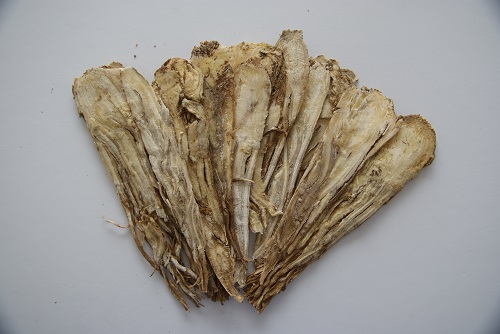Dongquai Large Slice

Angelica sinensis, commonly known as dong
quai or "female ginseng" is a herb from the family Apiaceae,
indigenous to China. Angelica sinensis grows in cool high altitude mountains in
China, Japan, and Korea. The yellowish brown root of the plant is harvested in
fall and is a well-known Chinese medicine used over thousands years.
The dried root of A. sinensis is commonly
known as Chinese angelica (simplified Chinese: 当归; traditional
Chinese: 當歸; pinyin: dāngguī; Pe̍h-ōe-jī: tong-kui) and is widely used in
Chinese traditional medicine for women"s health, cardiovascular conditions,
osteoarthrosis, inflammation, headache, infections, mild anemia, fatigue and
high blood pressure despite a lack of clinical data and trials showing
effectiveness in humans.
Dong quai is used for menopause vasomotor
symptoms such as hot flashes. However, in a randomized, double blind,
placebo-controlled clinical trial shows that dong quai is no more effective
than placebo.
Potential anti-osteoporotic effects of dong
quai independent of any estrogen mechanism were evaluated in rat models which
showed that the extract of A. sinensis may prevent the bone loss. However, more
high quality human evidence is needed to confirm same anti-osteoporotic effects
of dong quai in humans.
Dong quai contains a chemical compound
called butylidenephthalide which has antispasmodic activity in vitro and might
relieve dysmenorrhoea muscle cramps by relaxing the uterus muscle. However,
this claim lacks evidence of effectiveness in human clinical trials.
Overall, the U.S. National Library of
Medicine states that more evidence is needed to rate the effectiveness of dong
quai for most uses.